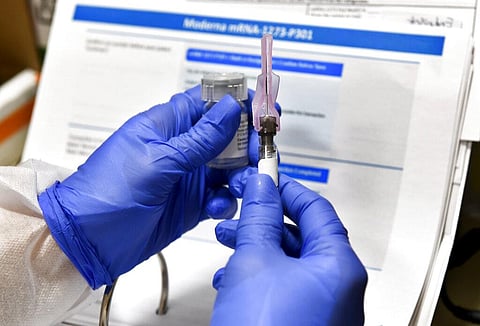

NEW DELHI: The Centre plans to roll out India’s first Quadrivalent Human Papillomavirus vaccine (qHPV), manufactured by Serum Institute of India (SII), against cervical cancer as part of the national immunisation programme by this year-end.“The vaccine will probably be rolled out in the third or fourth quarter of this year. We will introduce it in the immunisation programme,” said Dr N K Arora, head of the Covid-19 Working Group of the National Technical Advisory Group on Immunisation (NTAGI). “It will be introduced for children as part of a routine immunisation programme,” he added.
The Drug Controller General of India (DGCI), which had allowed the company to start manufacturing the vaccine on July 6, recommended market authorisation to SII on July 12. The drug controller based its approval following a recommendation by the Subject Expert Committee (SEC) on Covid-19 on June 15.
Before the DCGI approval, the NTAGI on June 29 had given its nod to the vaccine after going through the data. The recommendation came after a HPV working group of NTAGI had on June 8 reviewed the clinical trial data. Cervical cancer kills one woman in every eight minutes in India, with the country accounting for about a fifth of the global burden and 1.23 lakh cases and around 67,000 deaths per year, according to the World Health Organization’s International Agency for Research on Cancer (IARC-WHO). The vaccine, Cervavac, is based on VLP (virus-like particles), similar to the Hepatitis B vaccine, and protects by generating antibodies against the HPV virus L1 protein.
The trials for the vaccine started in 2019 and thousands of participants in the age-group of 9‐26 years were part of the trials across India. Phase III results showed a robust immune response in 100 per cent of the vaccine recipients with good safety records. Human papillomavirus (HPV) infection is now a well‐established cause of cervical cancer. HPV types 16 and 18 are most common and are responsible for about 70 per cent of all cervical cancer cases worldwide. The vaccine is said to be effective against four strains of the virus — Type 6, Type 11, Type 16 and Type 18.
Dr Manas Chakrabarti, consultant Onco-Gynaecologist, Manipal Hospital, Salt Lake, Kolkata, said national HPV vaccination is one of the single most important developments in Indian medical history and a milestone in preventing cervical cancer. A national vaccination drive will benefit a large section of women, he added. Currently, two vaccines licensed globally are available in India - a quadrivalent vaccine, Gardasil, from Merck, and a bivalent vaccine, Cervarix, from GlaxoSmithKline. However, both are costly, he added.
Describing indigenously-developed first qHPV against cervical cancer as “much awaited”, Dr Mahua Bhattacharya, Consultant Gynaecologist, Fortis Kolkata, said it would “be highly accepted considering the population profile and infection burden of India. This will surely significantly reduce morbidity and mortality associated with cervical cancer.” Cervical cancer is preventable if it is detected early and managed properly, she added. Though HPV vaccination has been licensed for use in India since 2008, it is yet to be included in the national immunisation programme, according to officials.
‘TAKE JAB RATE TO PRE-COVID TIME’
The World Health Organisation on Saturday called for more significant steps in the South-East Asia Region to revive regular immunisation rates to pre-Covid times, stressing that despite concerted efforts by countries, challenges and gaps persist. Highlighting India’s routine immunisation, the WHO said that decline was witnessed in 2020. However, it added that in 2021, India provided close to 2 billion doses of Covid-19 and other childhood vaccines taken together, over five times more vaccines administered in the country during the year than in 2020. Dr Poonam Khetrapal Singh, Regional Director WHO S-E Asia, commended the region for administering a billion doses since January 2021. “As we focus on further scaling up Covid-19 vaccination coverage, we must also do all we can to ensure no child is deprived of life-saving vaccines offered under routine immunisation services,” she added.